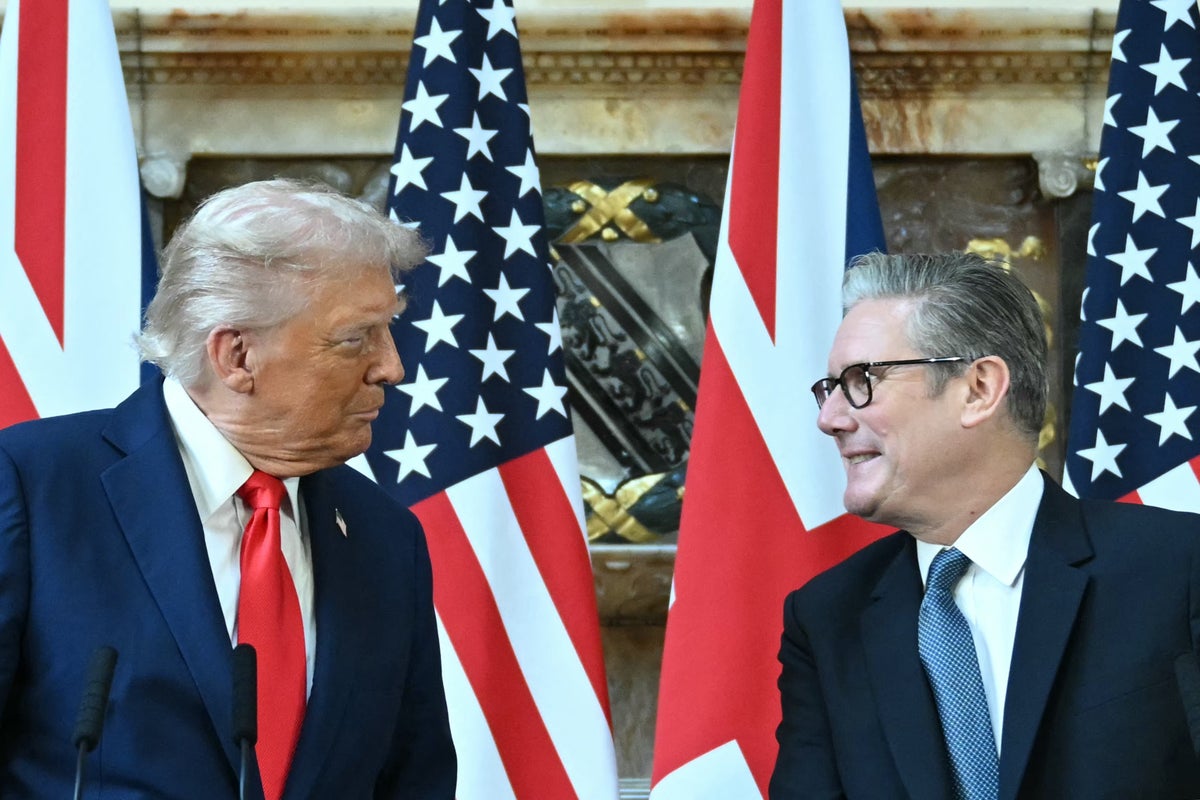Donald Trump’s UK state visit coincided with an announcement that US firms will invest round £150 billion into the UK.
The trip comes amid a key period for global trade, after the US president’s tariff plans led to significant trade tensions earlier this year.
Firms in some sectors have announced fresh commitments to pump billions into the UK, in a potential boost for Chancellor Rachel Reeves.
However, some industries criticised a lack of trade deal support and tough investment conditions in the UK.
So, which sectors have been winners and losers this week:
Winners
Tech
Technology firms have been at the forefront of the major investment deals into the UK.
On Wednesday, Prime Minister Sir Keir Starmer and Mr Trump announced a “tech prosperity deal” will see the UK and US co-operate in areas including artificial intelligence (AI), quantum computing and nuclear power.
America’s top technology companies announced £31 billion of investment alongside the announcement.
These included a commitment by Microsoft to invest £22 billion in the UK to fund an expansion of Britain’s AI infrastructure and the construction of the country’s largest AI supercomputer.
Nvidia boss Jensen Huang hailed a “big week for AI in the UK” as the US chip giant committed to supporting the development of the supercomputer.
The firm agreed to deploy 120,000 advanced processors across the UK to help improve infrastructure across the British AI sector.
Google committed £5 billion of investment, focusing on improvements in research and development and AI infrastructure.
There was also a raft of smaller investments by tech companies including AI cloud computing company CoreWeave, Salesforce and AI Pathfinder.
Defence
US software company Palantir announced plans to invest £1.5 billion in the UK’s defence sector, with funding going into the development of artificial intelligence-powered capabilities to speed up decision making, military planning and targeting.
Defence Secretary John Healey said the investment was a “major vote of confidence” for the UK.
Palantir said it plans to establish the UK as its European headquarters for defence, creating 350 “high-skilled” new jobs.
Manufacturing and R&D
There were a number of investments such as £3.9 billion from Prologis to drive growth in life sciences and advanced manufacturing.
US engineering firm Stax committed £37 million to expand its operations and pioneer emission-reducing technology used at ports.
Infrastructure
Private equity giant Blackstone said it plans to invest around £100 billion into assets in the UK over the next decade, in the single largest investment commitment.
This includes £10 billion of previously announced investment into its UK data centres.
Nuclear engineering company Amentum confirmed a £150 million investment in the UK and said it plans to create more than 3,000 new jobs, to increase its UK workforce by over 50 per cent over the next four years.
X-Energy and Centrica also said they plan to build up to 12 advanced modular reactors.
Losers
Steel
The steel industry was among the main sectors left disappointed by the president’s visit.
Plans for US tariffs on UK steel exports to be scrapped have been shelved, with the UK pausing its push to bring the levy down to zero.
UK steel exports to the US currently face a 25 per cent tariff, compared with 50 per cent for other nations.
Earlier this year, the UK and the US agreed for some UK steel to be exempt from tariffs.
Gareth Stace, director-general of industry trade association UK Steel, said it was “disappointing”.
Pharmaceuticals
As part of investments between the countries, UK pharmaceutical giant GSK revealed plans to put nearly £22 billion into US R&D and manufacturing over the next five years.
The government said the deal will “strengthen UK-US life sciences ties” but it comes amid a challenging backdrop for investment for the sector in the UK.
Last week, US-based Merck said its UK operation will scrap plans for a £1 billion site in Kings Cross, which had been due to open in 2027.
Bosses blamed the government for paying too little for medicines and not investing enough in the sector, as it confirmed the move, which will impact around 125 jobs.
Days later, AstraZeneca announced it had paused plans to invest £200 million at a Cambridge research site in the latest major blow for the sector.
Industry bosses told MPs this week that the “difficult” environment in the UK and pressure on pricing had made the UK a less attractive investment environment than other countries such as the US.
Mr Trump told reporters on Thursday that pharmaceutical firms were coming back to the US from other countries.
“Car companies are moving in, AI is moving in, everybody’s coming in… The drug companies are coming back, they all want to be there – they sort of have to be there – but they all want to be there.”

